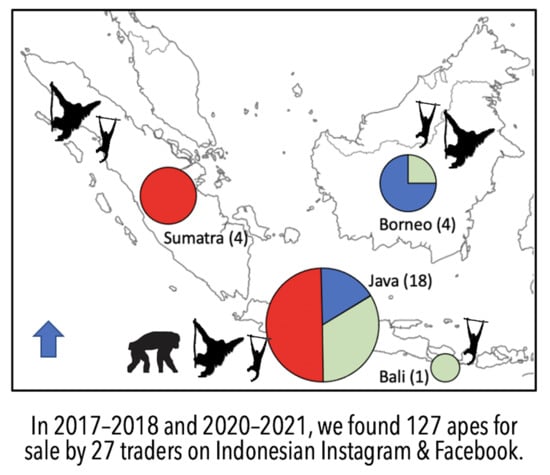Monitoring the Trade of Legally Protected Wildlife on Facebook and Instagram Illustrated by the Advertising and Sale of Apes in Indonesia
Abstract
Share and Cite
Nijman, V.; Smith, J.H.; Foreman, G.; Campera, M.; Feddema, K.; Nekaris, K.A.I. Monitoring the Trade of Legally Protected Wildlife on Facebook and Instagram Illustrated by the Advertising and Sale of Apes in Indonesia. Diversity 2021, 13, 236. https://doi.org/10.3390/d13060236
Nijman V, Smith JH, Foreman G, Campera M, Feddema K, Nekaris KAI. Monitoring the Trade of Legally Protected Wildlife on Facebook and Instagram Illustrated by the Advertising and Sale of Apes in Indonesia. Diversity. 2021; 13(6):236. https://doi.org/10.3390/d13060236
Chicago/Turabian StyleNijman, Vincent, Jaima H. Smith, Grace Foreman, Marco Campera, Kim Feddema, and K. A. I. Nekaris. 2021. "Monitoring the Trade of Legally Protected Wildlife on Facebook and Instagram Illustrated by the Advertising and Sale of Apes in Indonesia" Diversity 13, no. 6: 236. https://doi.org/10.3390/d13060236
APA StyleNijman, V., Smith, J. H., Foreman, G., Campera, M., Feddema, K., & Nekaris, K. A. I. (2021). Monitoring the Trade of Legally Protected Wildlife on Facebook and Instagram Illustrated by the Advertising and Sale of Apes in Indonesia. Diversity, 13(6), 236. https://doi.org/10.3390/d13060236






